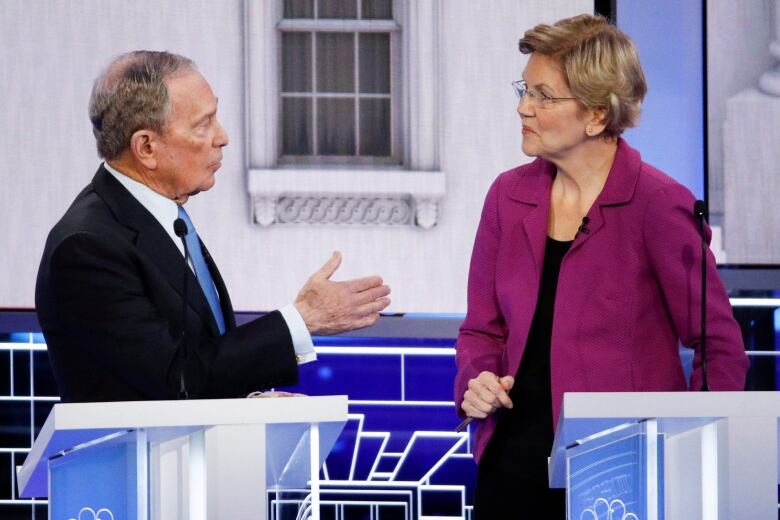Elizabeth Warren suspends presidential campaign: reports

Elizabeth Warren, who electrified progressives with her “plan for everything” and strong message of economic populism, confirmed to her campaign staff Thursday she would depart the Democratic presidential nomination race.
For much of the past year, her campaign had all the markers of success: robust poll numbers, impressive fundraising and a sprawling political infrastructure that featured staffers on the ground across the country. She was squeezed out, though, by Bernie Sanders, who had an immovable base of voters she needed to advance.
Warren never finished higher than third in the first four states and was routed on Super Tuesday, failing to win any of the 14 states voting and placing an embarrassing third in her home state, behind former vice-president Joe Biden and Sanders.
It was not immediately clear if she would endorse one of the remaining candidates. Members of the Biden and Sanders campaigns confirmed Thursday that Warren had reached out to them.
Warren, 70, entered the face on Feb. 9, 2019 in her native Massachusetts but wasn’t able to translate some strong debate performances into delegates.
Her polling began improving through the summer and she appeared to further hit her stride as she hammered the idea that more moderate Democratic candidates, including Biden, weren’t ambitious enough to roll back harmful policies of Donald Trump’s administration.
Took on Big Tech, Wall Street
She had a compelling message, calling for “structural change” to the American political system to reorder the nation’s economy in the name of fairness, in particular targeting Wall Street and Silicon Valley giants over their enormous influence and power. She had a signature populist proposal for a two per cent wealth tax she wanted to impose on households worth more than $50 million US that prompted chants of “Two cents! Two cents!” at rallies across the country.
Warren’s poll numbers began to slip after a series of debates when she repeatedly refused to answer direct questions about if she’d have to raise taxes on the middle class to pay for Medicare for All. Her top advisers were slow to catch on that not providing more details looked to voters like a major oversight for a candidate who proudly had so many other policy plans.
When Warren finally moved to correct the problem, her support eroded further. She moved away from a full endorsement of Medicare for All, announcing that she’d work with Congress to transition the country to the program over three years. In the meantime, she said, many Americans could “choose” to remain with their current, private health insurance plans, which most people have through their employers. Biden and other rivals pounced, calling Warren a flip-flopper, and her standing with progressives sagged.
Warren got a foil for all of her opposition to powerful billionaires when former New York mayor Mike Bloomberg entered the race. During a debate in Las Vegas just before Nevada’s caucus, Warren hammered Bloomberg and the mayor’s lacklustre response touched off events that ended with him leaving the race on Wednesday.
For Warren, That led to a sharp rise in fundraising, but didn’t translate to electoral success.
Born in Oklahoma to a churchgoing Methodist family, the former Harvard law professor was registered as a Republican until changing affiliation in 1996.
Warren raised her national profile with appearances as a personal finance expert on Dr. Phil beginning in 2003. She was soon tapped by Democratic leadership and the Barack Obama administration, serving on a congressional panel evaluating government bailout programs and then serving in the Consumer Financial Protection Bureau.
Encouraged to run for office, in November 2012 she toppled Scott Brown, the Massachusetts senator once thought to be a rising star in the Republican Party.
Warrent’s exit from the race following Minnesota Sen. Amy Klobuchar’s departure the past week leaves the Democratic field with just one female candidate: Hawaii congresswoman Tulsi Gabbard, who has collected only one delegate toward the nomination. It was an unexpected twist for a party that had used the votes and energy of women to retake control of the House, primarily with female candidates, just two years ago.


